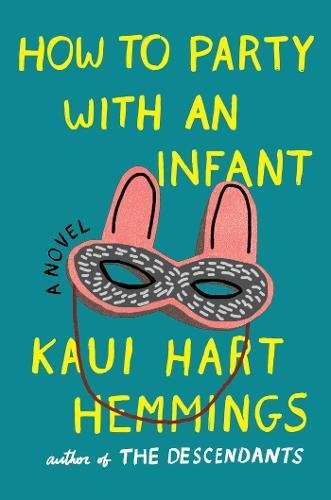 I noticed a book in the New York Times Book Review and Entertainment Weekly in the last week that sounded intriguing: The Beautiful Things that Heaven Bears by Dinaw Mengestu. According to the NYT, "this first novel of hope and loss concerns an Ethiopian immigrant who owns a failing gorcery store in a gentrifying neighborhood. He lives in two cities – the Washington where he struggles to survive and the Addis Ababa of memory. His pain is offset by the friendship of fellow immigrants and that of a white woman who moves with her young daughter into the house next door." The review praises the author’s "watchful honesty and egalitarian tenderness" and calls the book "a great African novel, a great Washington novel, and a great American novel."
I noticed a book in the New York Times Book Review and Entertainment Weekly in the last week that sounded intriguing: The Beautiful Things that Heaven Bears by Dinaw Mengestu. According to the NYT, "this first novel of hope and loss concerns an Ethiopian immigrant who owns a failing gorcery store in a gentrifying neighborhood. He lives in two cities – the Washington where he struggles to survive and the Addis Ababa of memory. His pain is offset by the friendship of fellow immigrants and that of a white woman who moves with her young daughter into the house next door." The review praises the author’s "watchful honesty and egalitarian tenderness" and calls the book "a great African novel, a great Washington novel, and a great American novel."
EW gave the book a B+. Here is the full review:
America’s cherished immigrant narrative — that triumphal tale of striving and assimilation, of quaint old-world traditions giving way to the enticements of the new — gets a melancholy revision in Dinaw Mengestu’s understated first novel, The Beautiful Things That Heaven Bears. ”I did not come to America to find a better life,” says narrator Sepha Stephanos. ”I came here running and screaming with the ghosts of an old one firmly attached to my back. My goal since then has always been a simple one: to persist unnoticed through the days, to do no more harm.”
Stephanos has succeeded all too well. In the 17 years since he fled the political violence in his native Ethiopia, Stephanos has acquired a shabby grocery store in the predominantly black Washington, D.C., neighborhood of Logan Circle, which he chose because it reminded him ”that wealth and power were not immutable, and America was not always so great after all.” He sells Bubble Tape gum and potato chips to schoolchildren and prostitutes (whose wares he sometimes accepts in trade) while reading V.S. Naipaul behind the counter. He is one of those emotionally frozen characters whom fiction writers love trying to thaw.
And who better to awaken this benumbed man than a woman? White urban pioneers begin to settle in the neighborhood, angering longtime residents and upsetting Stephanos’ equilibrium. Among the arrivals is Judith, a seductive white academic who buys and refurbishes ”a beautiful, tragic wreck of a building,” and moves in with her precocious mixed-race daughter, Naomi.
With blithe self-assurance that is possibly even more enviable than her wealth, Judith strikes up a friendship with Stephanos. Less probably, so does Naomi, who is soon spending whole days in his shop reading and discussing Dostoyevsky. (Happy though this makes Stephanos, the relationship rings false, the kind of precious intergenerational rapport that turns up most often in movies.) Hesitantly, Stephanos begins to imagine a fuller life, one that could perhaps include a romance with Judith.
How both Logan Circle and Stephanos ultimately deal with the threat/promise of Judith is the substance of this graceful novel. If there’s an underlying problem with the work, it’s that Mengestu keeps such tight control over his material that it can’t really breathe. Judith and Stephanos play their roles with subtlety and intelligence, but they always feel like just that: roles. The warmth that you sense lurks inside these people and within this impeccable book never completely emerges because Mengestu, like his characters, seems to be following a script.
The Book Court blog says: "Barely suppressed despair and black wit infuse this beautifully observed debut from Ethiopian émigré Mengestu…The novel’s dirge-like tone may put off readers looking for the next Kite Runner, but Mengestu’s assured prose and haunting set pieces (especially a series of letters from Stephanos’s uncle to Jimmy Carter, pleading that he respect “the deep friendship between our two countries”) are heart-rending and indelible."
This book is newly out in paperback.










About Me
I have been blogging about books here at Everyday I Write the Book since 2006. I love to read, and I love to talk about books and what other people are reading.